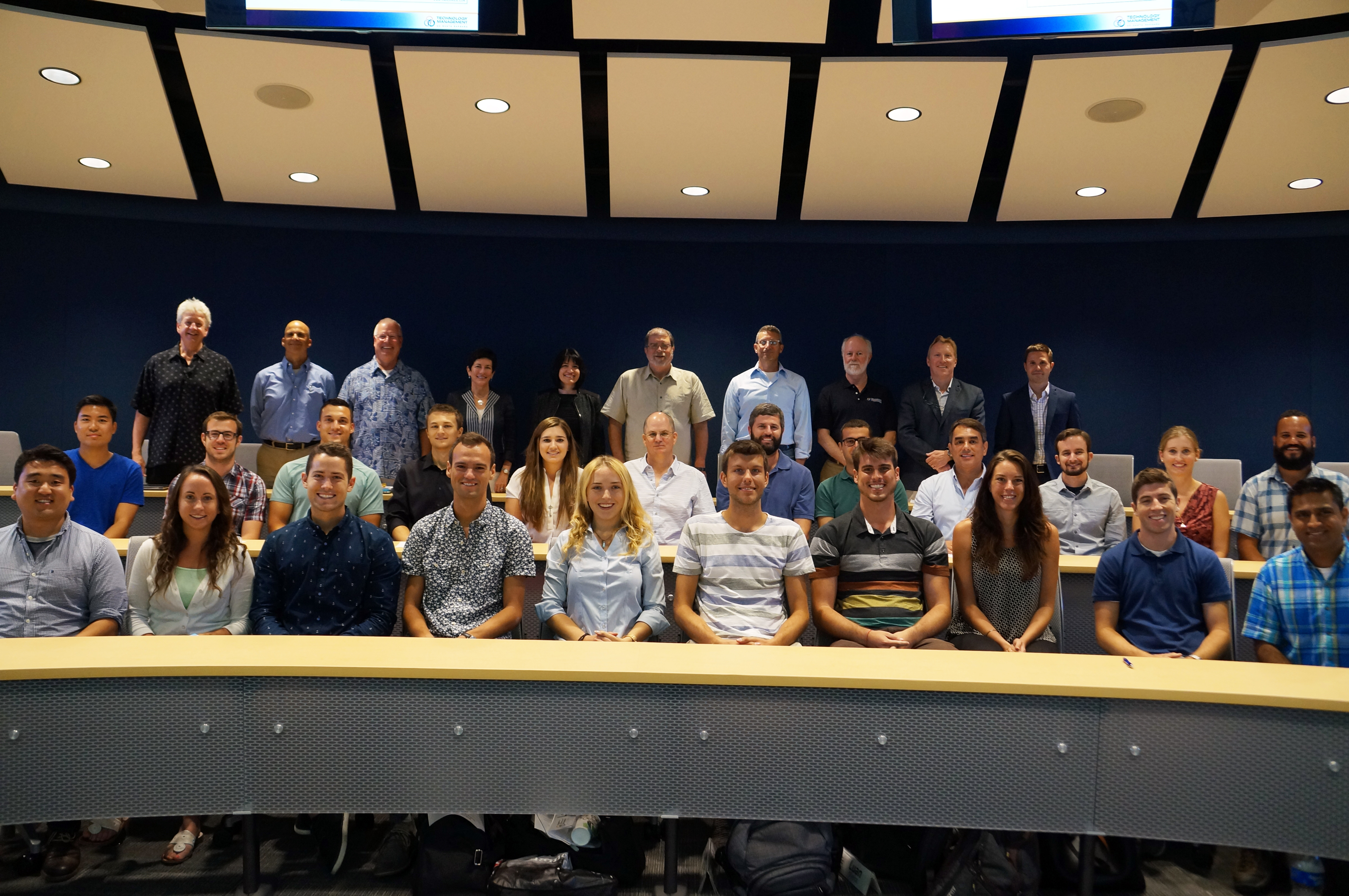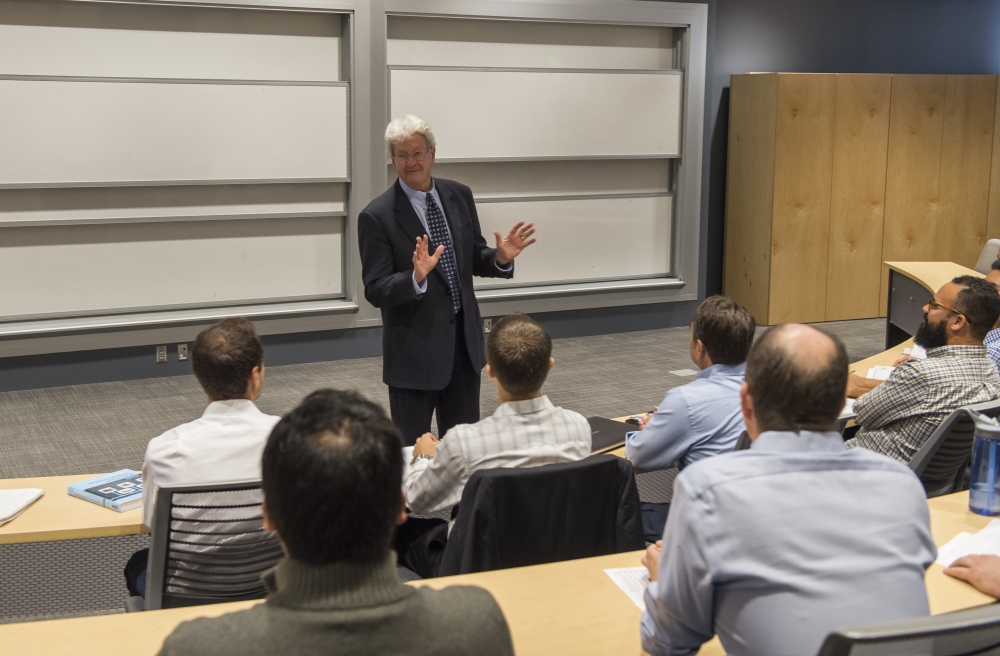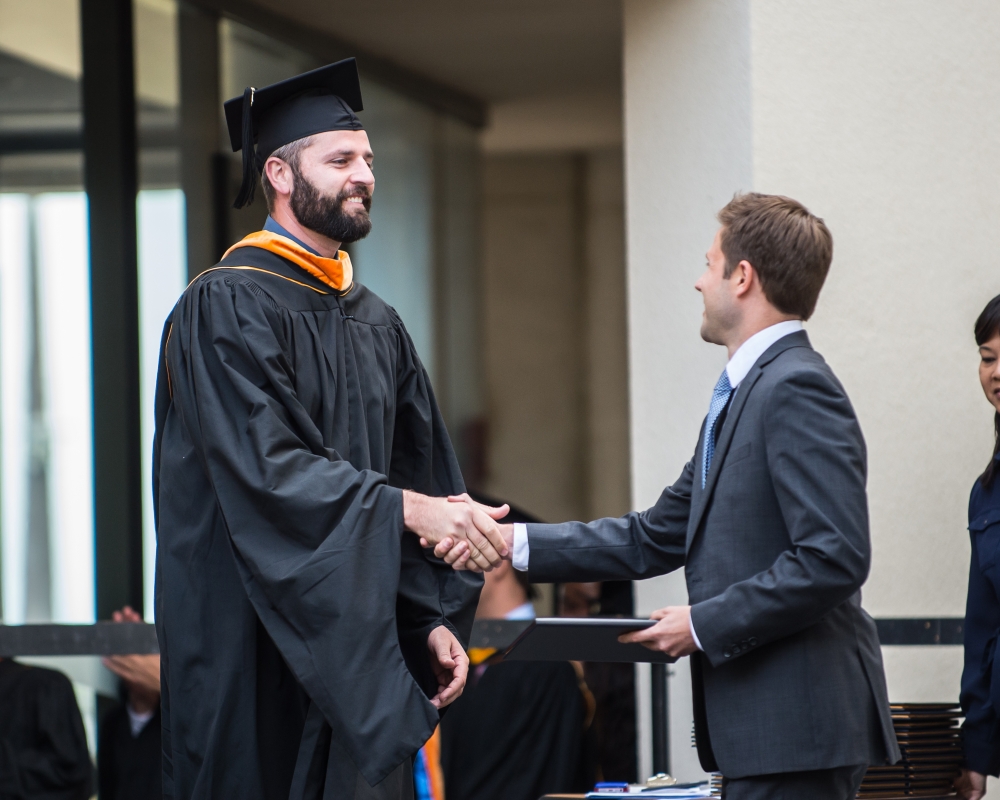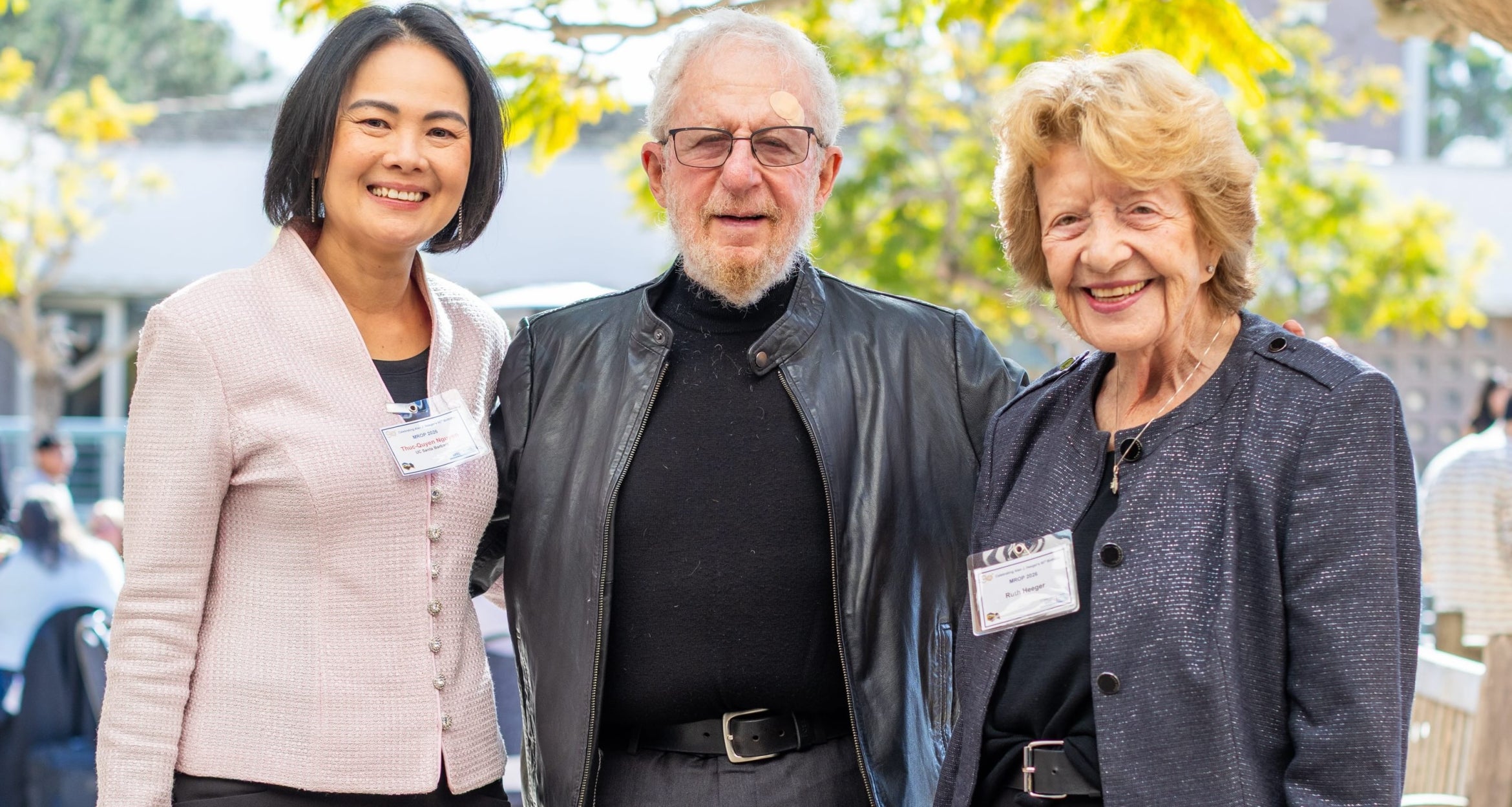First Class
When Letitia Mueller joined UC Santa Barbara’s Technology Management Program’s (TMP) New Venture Competition in 2015, the former biochemistry major got a taste of the exciting world of tech-based business. Her team, Chemoguard, a service that monitors chemotherapy levels in a patient’s tissues, went on to win in the Tech-Driven category of the contest.
For Mueller, the victory represented the beginning of a new career direction: technology management.
Meanwhile, Matthew Baum had already been a few years in industry, having graduated from UCSB with a degree in mechanical engineering in 2007. After spending several years in the design division of a startup, he decided to make the move from bench to boardroom.
“I had reached a point where I had moved up as far as I could without jumping into more of a management role,” he said. According to Baum, he needed to be ready for the next opportunity to make that move.
Both Mueller and Baum represent a growing population of science- and engineering-minded individuals in the workforce looking to navigate the world of technology-based business. It’s a rapidly expanding field that requires not only innovators and quick thinkers, but also those who have solid management and market analytical skills. Now after nine months learning from leaders in the field, Mueller and Baum along with 19 other students comprise the inaugural graduating class of UCSB’s first Master of Technology Management (MTM) professional program, organized under the auspices of TMP.
“We’re graduating our first class this year,” said Paul Leonardi, the Duca Family Professor of Technology Management at UCSB and founding director of the MTM program. “The students came in to the program typically with a lot of technical knowledge, and they’re leaving understanding how to build a business around their technology.”
Established under the aegis of UCSB’s College of Engineering, MTM is a business degree of a new kind, designed in response to an emerging need for leaders who can cross over between the technical and the managerial. Companies that started in garages and dorm rooms have moved up to clean rooms, labs and boardrooms, and technical talent is in abundance, but coherent leadership in the fast-paced world of tech-based business is not as easy to find, said Leonardi.
“Once you start to grow, you start to get to all these management and leadership kinds of questions,” he said of problems and issues specific to technology-based companies. “For example, motivating engineers is very different than motivating financial planners. And when you’re dealing with a high degree of product uncertainty, the kinds of choices you make about how to allocate resources is very different than when you’re working in a much more stable industry where products are relatively known commodities.”
Unlike traditional MBA programs, said Leonardi, MTM was designed specifically for the tech business environment, from the startup trying to break into the market to the established company trying to be more strategic about its direction. MTM’s curriculum is based on skills identified as necessary by the leaders of influential tech companies and startups, and venture capitalists across California. Courses are taught by tech-venture veterans and professors of management and organizations who have decades of experience successfully navigating the swift waters of tech business.
“For me it’s a once-in-a-lifetime opportunity to be involved in a systematic curriculum development that almost never happens in universities,” said Leonardi, who spent a decade teaching at a business school before coming to UCSB. The curriculum is also cumulative and hands-on, with skills that are put into practice in real-world business situations almost immediately after they are learned.
“Several things stood out for me. For example, Professor Stephen Duneier’s class, which really taught me how to think differently about the decisions that I make on a daily basis, and how to think about opportunity costs,” Mueller said. Leadership training and the opportunity to work with a team were other elements that she said she found essential in her training.
For Baum, learning about networks, both within and around the company was one of the things he found illuminating, and even fun.
“We did a network analysis with a company where you interview people to find out who communicates and shares ideas with whom,” he said. The result revealed the underlying structure of communication within the organization, which sometimes doesn’t match its hierarchy, he added. However, such an analysis could reveal where communication could be strengthened and who might have influence as opposed to formal power. Additionally, Baum said, the significance of humility in a managerial role was something he found important as it benefits all sorts of relationships within the organization as well as with customers, clients and potential industry partners.
What both Mueller and Baum — and likely all the students in this inaugural MTM class — have gained is the confidence and the business background they need to take advantage of higher-level management opportunities within tech-based companies. According to them, the ability to communicate on both the technical level and the business level will give them the ability to be both visionary and practical.
As the inaugural class of MTM prepares for the next phase in their careers, Leonardi and colleagues behind the program are already gearing up for the next cohort of students. With one year’s experience and “extremely good” feedback from this pioneering group of students, the next year promises to be even more effective and enlightening.
“We’re on pace to have 50 percent more students in the program this fall,” Leonardi said.







